Applications for Ohio Farm Bureau Health Plans now available
Members have three ways to apply: contacting a certified agent, calling 833-468-4280 or visiting ohiofarmbureauhealthplans.org.
Read MoreLove a tasty slice of bacon, tangy smoked ribs or a savory piece of ham? If so, you’re not alone. Demand for pork products is sizzling hot — it’s the most widely eaten meat in the world, accounting for more than a third of meat consumption.
“People love pork. It’s as simple as that. Right now an enormous amount of product is moving and that’s expected to keep rising as more plants open up,” said Bryan Humphreys, executive vice president of the Ohio Pork Council.
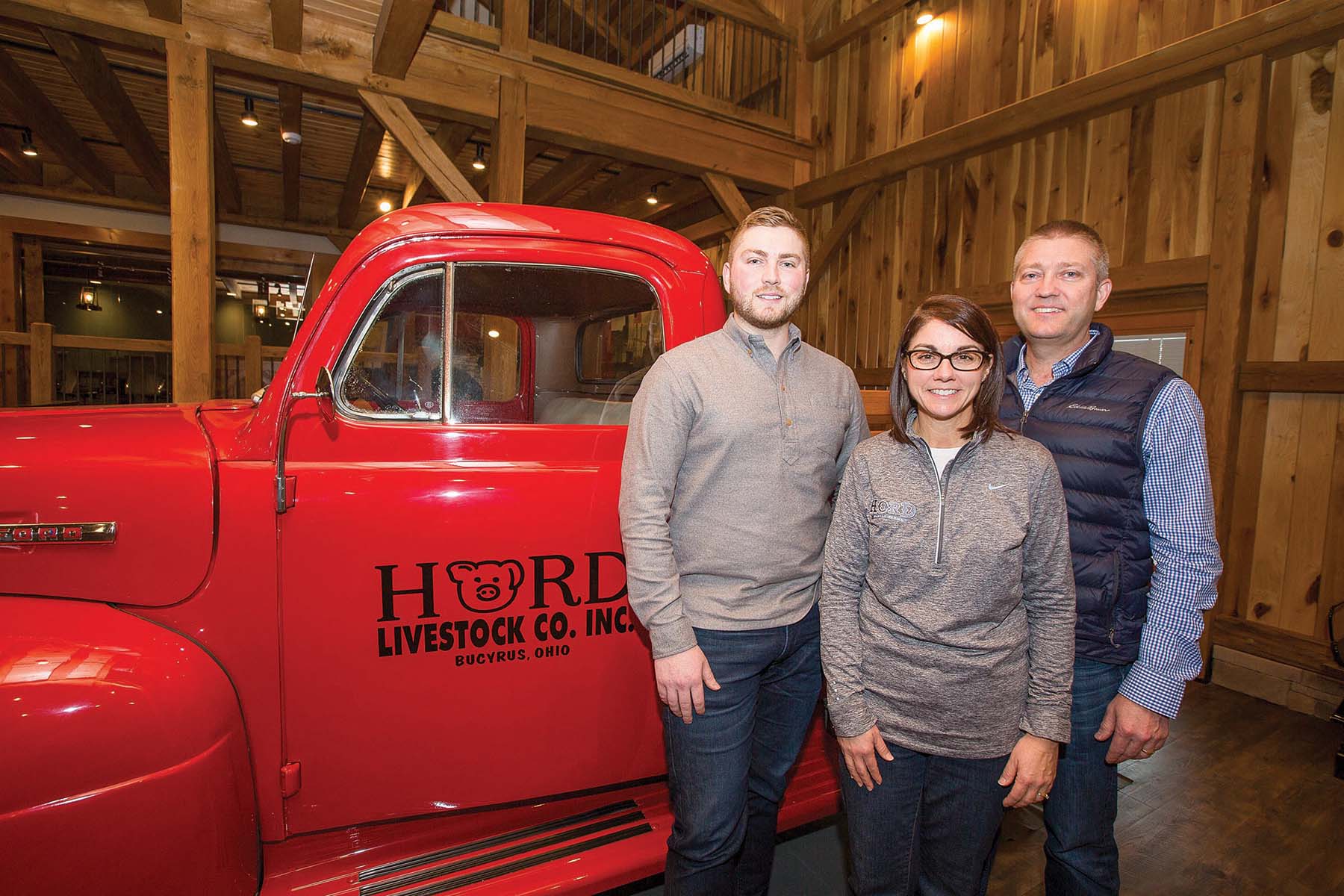
Last September, two large-scale processing plants opened in Iowa and Michigan, and another one is scheduled to open next year in Iowa as the U.S. pork industry gears up to meet demand. In 2014, the United States produced 22.8 billion pounds of pork. That number is projected to grow another 4 billion pounds this year, according to the U.S. Department of Agriculture’s Economic Research Service. About one-fourth of pork products goes to international markets with demand growing in countries with an expanding middle class that can now afford meat. Plus, demand for bacon is so strong that two years ago, the U.S. supply of pork bellies (where bacon comes from) hit a 50-year-low.
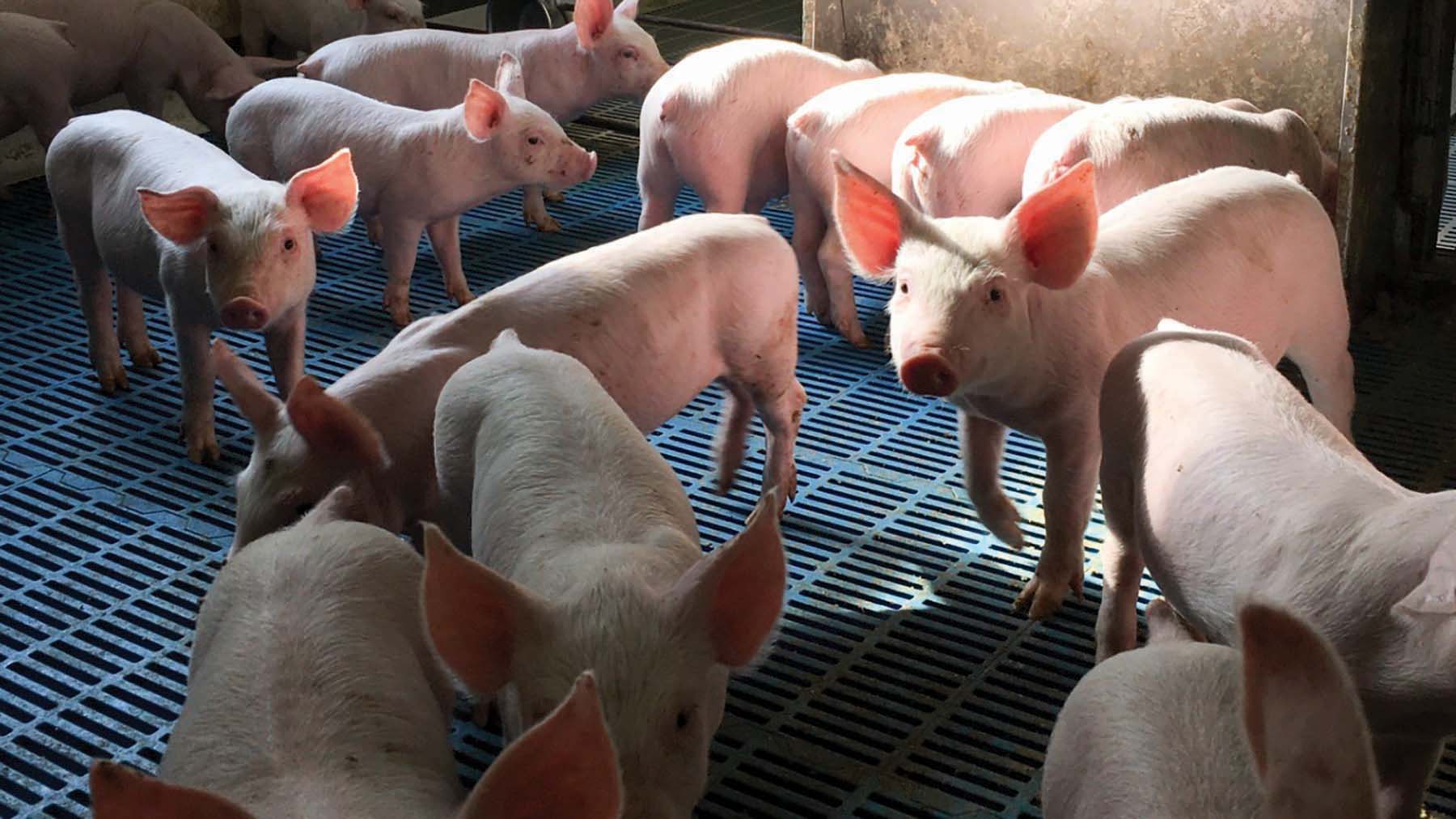
The opening of the Coldwater, Mich. processing plant just a few miles from northwestern Ohio is good news for Ohio pork producers. It gives them another nearby plant to send their hogs, reducing their transportation costs and carbon footprint. For years, the J.H. Routh Packing Co. in Sandusky has been Ohio’s only large-scale hog processing plant (sprinkled throughout the state are small mom and pop chop shops).
Three Ohio Farm Bureau families — Cooper Farms, Heimerl Farms and Hord Family Farms — have done more than rejoice in the opening of the Michigan plant; they’ve financially invested in it.
“This is such a unique partnership because you have farmers who helped build a plant,” said Pat Hord, the fourth generation to help run the family’s hog, grain and cattle business in Bucyrus. Every day, about 2,000 pigs are born at Hord’s farms in Bucyrus and cared for at its 130 contractor barns throughout Ohio and Pennsylvania. The Hords estimate they feed 2.5 million people every year.
Hord joined the family business in 1987 when he graduated from high school, concentrating on the hog side of the operation. As the number of hogs raised on the farm increased, so did interest in having another centrally located pork processing plant. In 2014 Hord joined other Ohio pork producers and industry leaders in researching the feasibility of a new plant opening up in the state. Meanwhile, Michigan pork producers were already doing the same thing, fueled by a $100,000 economic grant. Michigan had lost its only large-scale hog processing plant in 1998 when Thorn Apple Valley shuttered its plant in Detroit. Michigan leaders reached out to the Clemens Food Group for advice and as a potential investor. Since the 1990s, the Pennsylvania-based company has been processing Hord’s hogs and selling most of its end product on the East Coast, mainly under its Hatfield brand name.

“We started realizing we were running up against capacity issues at our Pennsylvania facility, and it became clear this would be a good investment for us. We already had relationships with several producers in Ohio and Indiana who were looking to expand, and we were happy that we could bring in other family owned, like-minded and progressive producers like the Hords, Heimerls and Coopers,” said Dan Groff, director of hog supply for Clemens.
The $255 million Michigan plant is more than 600,000 square feet and harvests about 10,000 hogs per shift. The fresh cuts are frozen and shipped to Clemens’ plant in Hatfield where they are processed into bacon, sausage and other value-added products. The plant was designed to grow as needed — only 40 acres of the 450-acre site is currently used.
Hord Family Farms has already started its expansion by increasing the capacity of its feed mill and adding a new sow (mature female pig) farm. The farm currently has about 180 employees, making it one of Crawford County’s largest employers. Jobs range from swine technician to livestock nutritionist to truck driver. The Hords have a team of environmental specialists who focus on managing the animals’ manure and the fertilizer needs of their 7,000 acres of grain crops. Expansion of the Hord’s operation and others around the state will result in new jobs and opportunities.
“The downstream effect of this in Ohio is truly phenomenal,” Humphreys said. “It will really impact all of agriculture because more corn and soybeans will be bought, new contract barns will go up and more workers will be hired. The long-term effect of the (Michigan) processing plant is that it will help rebuild rural Ohio.”
For the Hords, the addition of the Coldwater plant allows the Bucyrus area farm to continue to grow and invest in its community, meeting two of its core goals. Other goals are to be agricultural stewards, help develop and empower individuals and be honest and caring — similar goals of the sixth-generation Clemens family.
“We’ve been incrementally growing the last 25 years at a steady, sustainable level and will continue to do so,” said Hord, president of the family operation and on the board of directors of Clemens Food Group. “Farming is better than it was 50 years ago because of all the improvements and safety measures in place. We tend to romanticize the past and forget that things weren’t always so good in the past. While the farm looks very different than when my grandfather farmed, our goals are the same — to take care of baby pigs the best we can every day.”
Fast Fact
Pigs were first commercially harvested in Cincinnati. Known as “Porkopolis,” Cincinnati processed a quarter of a million pigs annually in the 1840s.
Source: National Pork Board
Properly taking care of the land is an integral part of Hord Family Farms. All of Hord’s facilities have comprehensive nutrient management plans (NMPs) that detail responsible fertilizer use, proper use of organic by-products and ways to reduce nutrient and sediment loss. NMPs help farmers improve water quality, potentially reduce their costs and increase their yields. As further demonstration of their commitment, Hord Family Farms have donated a significant amount toward the purchase of manure equipment to Ohio State University Extension to support ongoing efforts to help them develop cutting edge best management practices for manure handling. In March, Ohio farm organizations including Ohio Farm Bureau, announced a new nutrient management plan effort that aims to expand the number of farmers who have nutrient management plans and increase the use of soil testing to improve nutrient management.


Members have three ways to apply: contacting a certified agent, calling 833-468-4280 or visiting ohiofarmbureauhealthplans.org.
Read More

Michelle Downing of Franklin County has been named finance director of county operations for Ohio Farm Bureau.
Read More
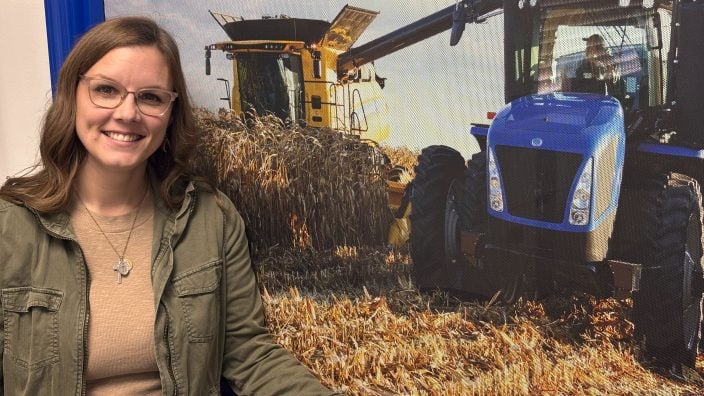
Remember why you joined Farm Bureau and find others that want to join for the same reasons. ~ Alicia Weaver
Read More

Four property tax reform bills were signed into Ohio law at the end of 2025. Ohio Farm Bureau Associate General Counsel Leah Curtis breaks down the bills and what the changes mean for Ohioans.
Read More
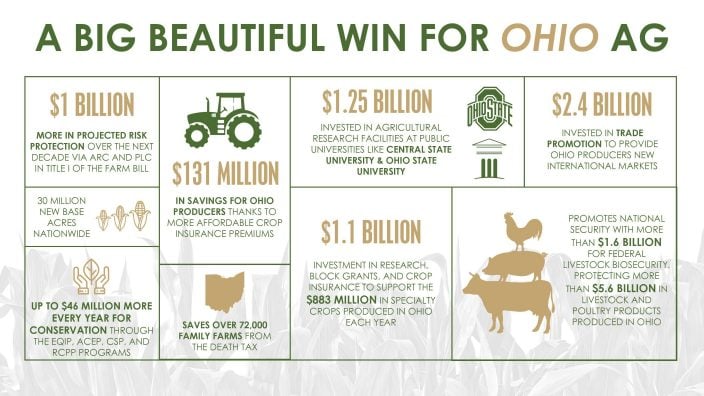
Overall, $65.6 billion from this aid package is projected to increase agriculture-focused spending over the next decade.
Read More

Ohio Farm Bureau brought forth 10 policies to be voted upon by delegates at the American Farm Bureau Annual Convention in Anaheim earlier this week, and all 10 were approved as national policy.
Read More
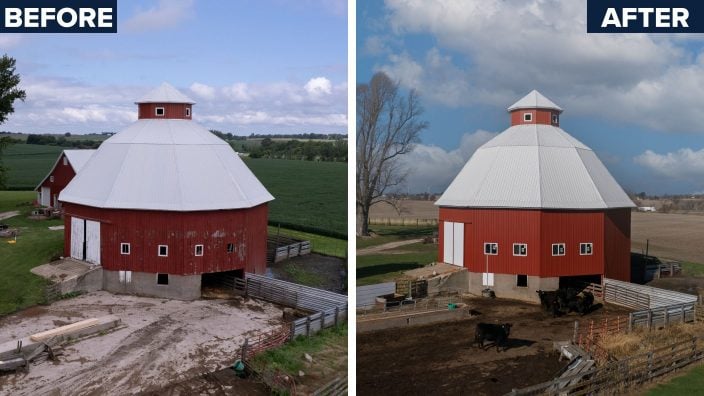
For property owners with aging post-frame buildings, the new year is an ideal time to rethink the future of your pole barn.
Read More

Ohio EPA has recently proposed allowing data centers to obtain ‘general’ National Pollutant Discharge Elimination System (NPDES) permits for their stormwater/wastewater discharges.
Read More

Jan. 9-14, Ohio Farm Bureau members shined a light on the outstanding leadership and community impact agriculture possesses in our state.
Read More

The American Farm Bureau Federation County Activities of Excellence awards celebrate unique, local, volunteer-driven programs.
Read More